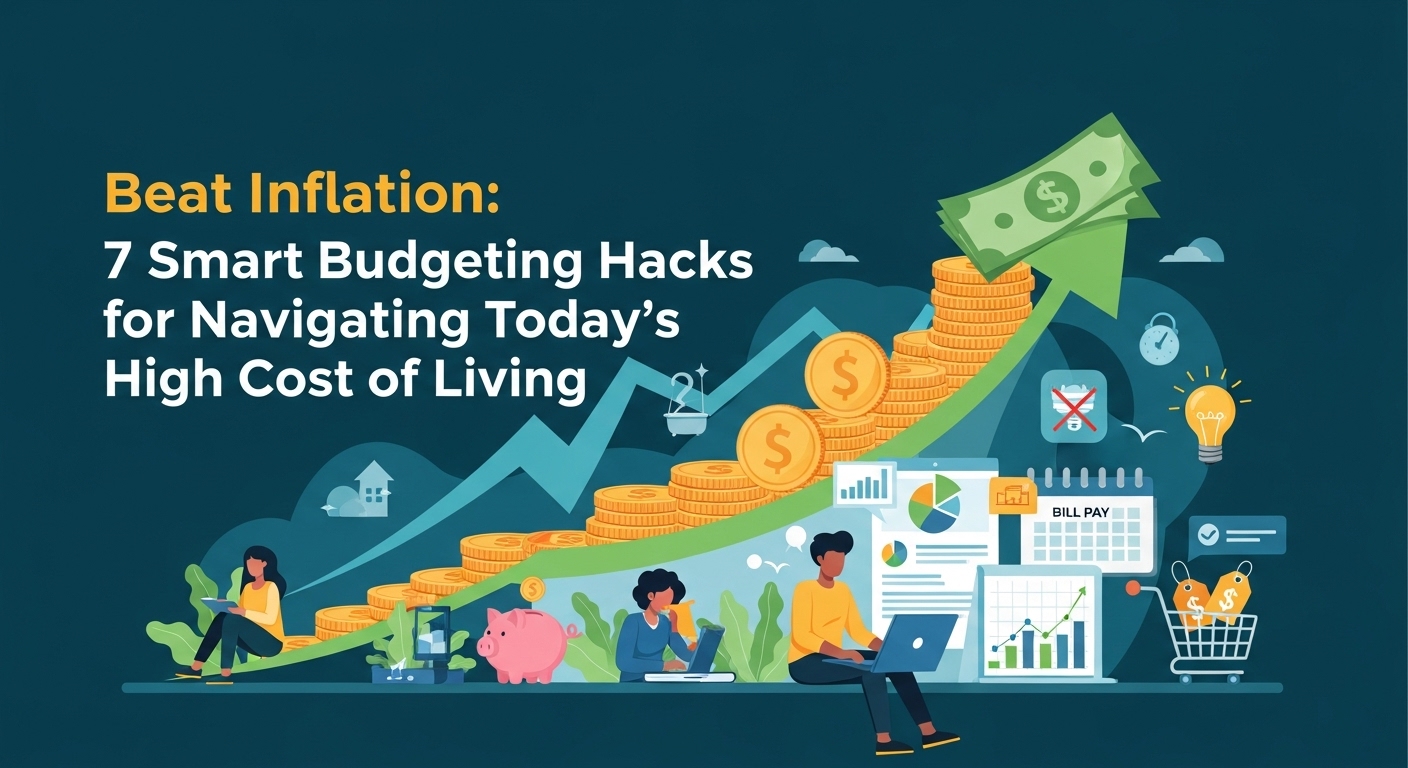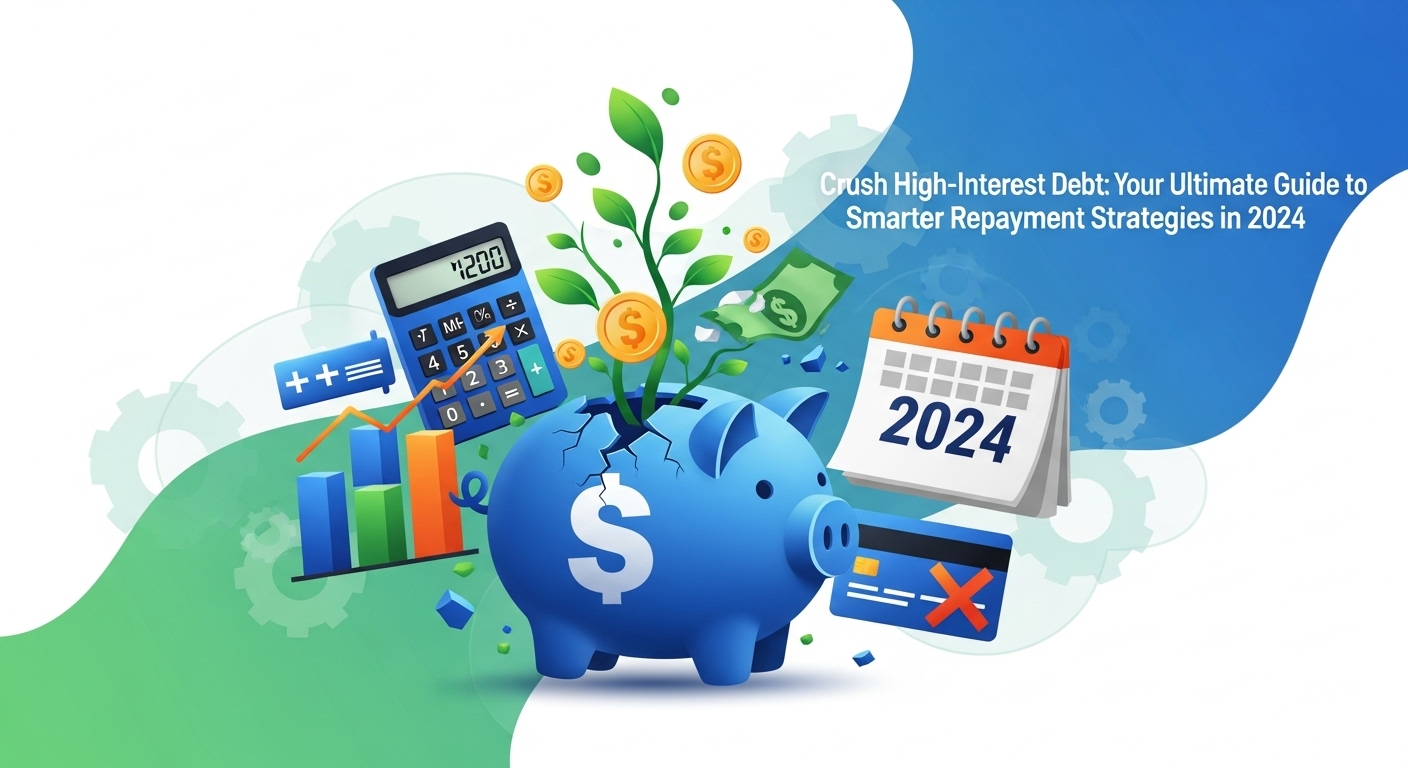Feeling the Squeeze? You’re Not Alone
Let’s be honest: checking the price at the gas pump or the total on your grocery receipt can feel like a punch to the gut these days. The cost of everything, from eggs to electricity, seems to be on a relentless upward climb. This isn’t just your imagination; it’s inflation, and it’s shrinking the purchasing power of your hard-earned money. It’s easy to feel helpless, like you’re on a treadmill, running faster just to stay in the same place. But what if you could fight back? What if you could regain control and make your money work for you, even in a high-cost environment?
The good news is, you can. Navigating this economic landscape isn’t about drastic, joy-sucking deprivation. It’s about being smarter, more strategic, and more intentional with your resources. This is where solid personal finance habits come into play. By adopting a few clever budgeting hacks, you can not only survive but thrive. Forget the old, rigid budgeting rules that feel like a financial straitjacket. We’re talking about actionable, modern strategies that fit your life and empower you to beat inflation at its own game. Ready to take back control? Let’s dive into seven smart hacks to help you navigate today’s high cost of living.
Hack 1: Conduct a Value-Based Budget Audit
Before you start slashing expenses left and right, take a step back. The most effective budgets aren’t about cutting everything to the bone; they’re about aligning your spending with what you truly value. A value-based audit forces you to ask the most important question: “Is this purchase bringing me real joy or moving me closer to my goals?”
How to Perform Your Audit
Start by printing out your last two to three months of bank and credit card statements. Go through them line by line with a highlighter. For each expense, ask yourself if it was truly worth the money. Was that daily $6 latte a moment of genuine pleasure, or just a mindless habit? Did those five streaming subscriptions get used, or are they just draining your account? This isn’t about guilt; it’s about awareness. You might discover you’re spending hundreds on things you don’t even care about, freeing up cash for what truly matters, whether that’s saving for a down payment, planning a vacation, or simply building a robust emergency fund.
Hack 2: Master Inflation-Proof Grocery Shopping
The grocery store is one of the main battlegrounds against inflation. Food prices are volatile, but with a strategic approach, you can significantly reduce your bill without subsisting on ramen noodles.
Your Grocery Game Plan
- Embrace Unit Pricing: Don’t just look at the shelf price; look at the price per ounce or per unit. The bigger package isn’t always the better deal. This small habit can save you a surprising amount over time.
- Plan Your Meals Religiously: Meal planning is your secret weapon against impulse buys and food waste. Plan your week’s meals around sales flyers and what you already have in your pantry. This simple act of planning ensures every item you buy has a purpose.
- Befriend Store Brands: In many cases, the store brand (or generic) product is made in the same factory as the name-brand one. Give them a try. You’ll often find the quality is identical, but the price is significantly lower.
- Shop the Seasons: Buying produce that’s in season is almost always cheaper and tastes better. Build your meals around seasonal fruits and vegetables to maximize savings and flavor.
Hack 3: Automate Your Savings and Pay Yourself First
This is a cornerstone of effective personal finance for a reason: it works. The “pay yourself first” principle means that before you pay bills, buy groceries, or spend on anything else, a portion of your income is automatically transferred to your savings or investment accounts. Inflation erodes the value of cash sitting in a low-interest checking account. By automating your savings into a high-yield savings account or an investment vehicle, you’re putting your money to work and helping it grow faster than inflation can eat it away.
Setting Up Automation
It’s incredibly simple. Log into your online banking portal and set up a recurring transfer from your checking account to your savings account for the day after you get paid. Start small if you have to—even $25 a week makes a difference. The key is that the money is gone before you have a chance to miss it or spend it. It’s a powerful psychological trick that builds wealth passively.
Hack 4: Renegotiate Everything—Your Bills Aren’t Set in Stone
Many people assume their monthly bills for services like cable, internet, cell phone, and insurance are fixed. This is rarely the case. These companies spend a lot of money acquiring new customers and often prefer to offer a loyal, existing customer a discount rather than lose them completely.
The Art of the Call
Set aside an hour. Gather your recent bills and do a quick search for competitor offers in your area. Then, call your provider’s customer service line. Be polite but firm. Use phrases like: “I’m reviewing my budget and my bill for [service] is higher than I’d like. I’ve been a loyal customer for [X years], and I’m wondering if there are any promotions or discounts you can offer me to help lower my monthly cost.” Mentioning a competitor’s offer can also be a powerful negotiation tool. You’d be surprised how often a five-minute phone call can save you $20, $50, or even more per month.
Hack 5: The Great Subscription Purge
We live in a subscription economy. Streaming services, software, meal kits, gym memberships, curated boxes—they all add up. A $15 monthly subscription might not seem like much, but five of them add up to $900 a year. It’s time for a digital declutter.
How to Conduct the Purge
Use a budgeting app or go through your bank statements to list every single recurring subscription you have. Now, be ruthless. For each one, ask: “Have I used this in the last month?” and “Does this bring me significant value?” If the answer is no, cancel it immediately. For services you use intermittently, consider a rotating strategy. Binge-watch that show on one platform, then cancel it and subscribe to another for a month. This keeps your options open without paying for everything all at once.
Hack 6: Reboot the Cash Envelope System for Variable Spending
The cash envelope system is a classic for a reason: it makes spending tangible. When you physically hand over cash, you feel the purchase more than when you mindlessly tap a card. This can be a game-changer for high-variable spending categories where you tend to overspend, like dining out, entertainment, or coffee.
A Modern Twist
You don’t have to carry wads of cash. You can adapt this for the digital age. Use a separate debit card or a specific digital wallet (like a dedicated account on Venmo or Cash App) just for your variable spending. At the beginning of the month, transfer your budgeted amount to that account. When the money is gone, it’s gone. This creates a hard stop and forces you to be more mindful about your discretionary purchases.
Hack 7: Use Credit Card Rewards Strategically
Credit cards can be a dangerous tool if used improperly, but when managed responsibly, their rewards can be a powerful tool against inflation. The key is to use them for expenses you already have and to pay the balance in full every single month to avoid interest charges, which would negate any rewards earned.
Maximize Your Cashback
Look for cards that offer high cashback percentages in the categories where you spend the most, like groceries (some offer up to 6% back) or gas. Think of this cashback not as free money to splurge with, but as a direct discount on your necessary expenses. Let the rewards accumulate and then redeem them as a statement credit to directly lower your bill, or deposit them into your high-yield savings account to give your savings an extra boost.
Your Action Plan to Beat Inflation
Navigating a period of high inflation can be daunting, but it’s not impossible. By shifting from a passive consumer to an active, intentional manager of your money, you can protect your financial well-being. These seven hacks are more than just tips; they are a framework for building a resilient and thoughtful approach to your personal finance. You don’t have to implement all of them overnight. The most important step is the first one.
So, here’s your call to action: Pick just one of these hacks to focus on this week. Maybe it’s calling your cell phone provider. Perhaps it’s canceling one subscription you haven’t used. Or maybe it’s just planning your meals for the next few days. Small, consistent actions create massive results over time. Start today, and you’ll be well on your way to not just surviving, but thriving in any economic climate.


